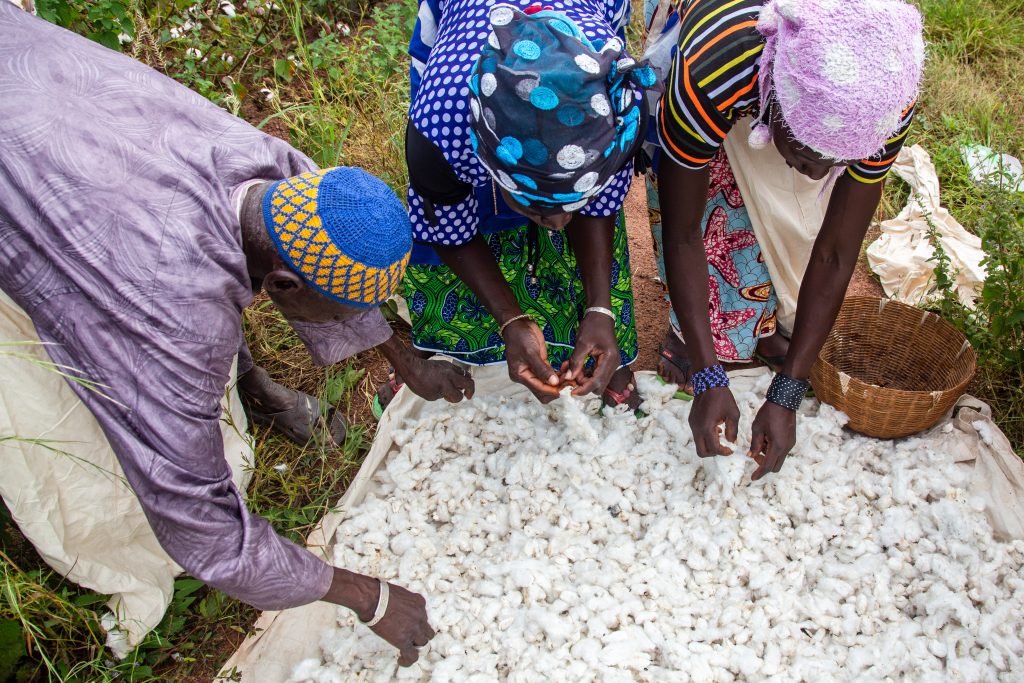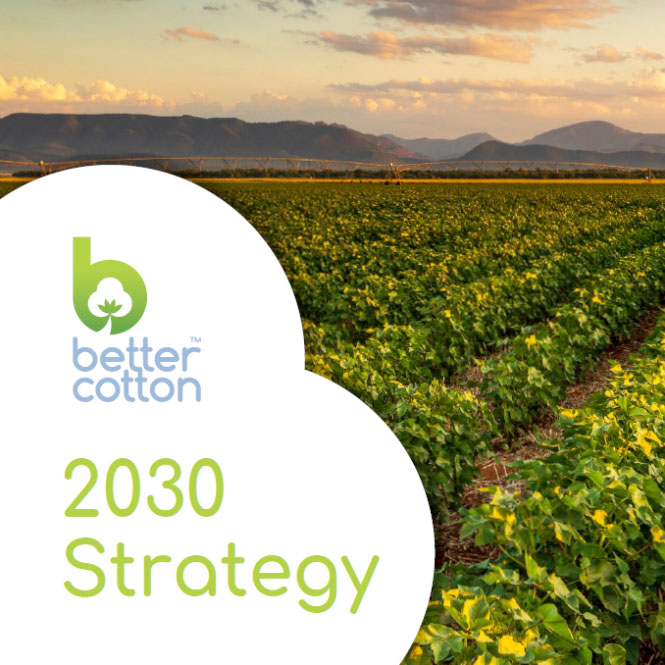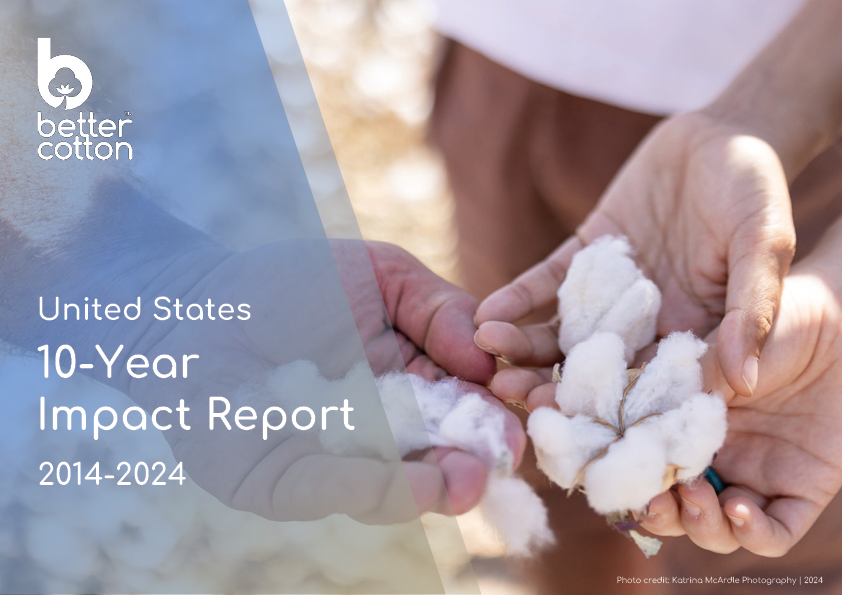- Who we are
- What we do
In just over 10 years we have become the world’s largest cotton sustainability programme. Our mission: to help cotton communities survive and thrive, while protecting and restoring the environment.
- Where we grow
Better Cotton is grown in 22 countries around the world and accounts for 22% of global cotton production. In the 2022-23 cotton season, 2.13 million licensed Better Cotton Farmers grew 5.47 million tonnes of Better Cotton.
- Our impact
- Membership
Today Better Cotton has more than 2,700 members, reflecting the breadth and diversity of the industry. Members of a global community that understands the mutual benefits of sustainable cotton farming. The moment you join, you become part of this too.
- Associate Membership
- Civil Society Membership
- Producer Organisation Membership
- Retailer and Brand Membership
- Supplier and Manufacturer Membership
- Find Members
- Member Monitoring
- Better Cotton Platform
- myBetterCotton
- Resources – Better Cotton Conference 2022
- Complaints
- Whistleblowing
- Safeguarding
- Get Involved in the Better Cotton Programme
- Thank you for contacting us
- Better Cotton’s Data Privacy Policy
- Log in
- Members’ Area
- Request for Proposals
- Better Cotton Cookie Policy
- Web Reference
- Measuring Cotton Consumption
- How to Implement the Chain of Custody Standard
- Resources – Better Cotton Conference 2023
- Certification Bodies Old
- Latest
- Sourcing
- Latest
The founding premise of Better Cotton is that a healthy sustainable future for cotton and the people that farm it is in the interests of everyone connected with it.
Let us help you find what you’re looking for
Results for {phrase} ({results_count} of {results_count_total})Displaying {results_count} results of {results_count_total}

As part of Better Cotton’s 2030 Strategy, our organisation has entered a phase of transformation, during which we are working to deepen our impact. One of the ways in which we will look to achieve this is a focus on enhancing well-being and economic development for cotton communities, as we strive to make cotton farming economically viable for all farmers, and in particular smallholders.
In order to achieve this goal, we are developing our approach to support sustainable livelihoods for farmers and workers in cotton. To find out all about Better Cotton’s approach, we spoke with Maria Kjaer, our Smallholder Livelihoods Manager.

Could you give us an overview of why a Sustainable Livelihoods Approach is needed?
Globally, approximately 90% of cotton farmers are considered smallholder farmers – meaning that they grow the crop on less than 2 hectares of land. A significant proportion of these smallholder cotton farming households are found in Global South where poverty is a widespread challenge. This represents a substantial barrier to sustainable cotton production, with smallholders struggling more than any other group to establish Sustainable Livelihoods. We see a targeted organisational approach to tackle these challenges as an absolute necessity.
What does the Sustainable Livelihoods approach look to achieve?
In order to address these really complex challenges, our Sustainable Livelihoods Approach seeks to support smallholder farmers in moving towards increased wellbeing and a living income, a concept which The Living Income Community of Practice defines as the net annual income required for a household in a particular place to afford a decent standard of living for all members of that household.
Together with our in-country partners and global members of the cotton value chain, we want to help farmers to achieve this in a sustainable way, which is why it was important for us to establish a clear framework for the social impact that we wish to see throughout the cotton communities, highlighting the outcomes we are aiming to achieve through our work. We are excited to launch this new approach soon and roll it out with our partners during 2023.
What impact do you expect the new approach to have?
Going forward, we will continue to support the more sustainable growing of cotton, increasing profitability for farmers where possible. However, with our new Sustainable Livelihoods Approach, we want to approach our work in a more holistic manner.
We have identified four key Impact Areas to improve smallholder livelihoods that will guide the work that we carry out in collaboration with our partners. Our aspiration is that this new approach will enable us to:
- Support skills development and learning
- Enable increased access to resources
- Promote livelihood diversification
- Expand social networks and relations
With Better Cotton’s Sustainable Livelihoods Approach , we are also committing to leveraging our position to support farmers and workers to achieve a living income, improve standards of living and make a positive contribution to the eradication of poverty in smallholder cotton farming communities. This will not happen overnight and will require a concerted effort from actors in the supply chain, which we will look to drive forward.
How will this new approach impact Better Cotton’s work with partners?
It is essential that we enable our partners to deliver impact at field level, and in order to achieve this, we will be investing in these areas via our Growth and innovation Fund (GIF) and through additional fundraising. Sustainable Livelihoods is also one of our five 2030 Impact Target areas, alongside Soil Health, Pesticides, Climate Change Mitigation, and Women’s Empowerment.
By 2030, our target is to sustainably increase the net income and resilience of two million cotton farmers and workers. This will be achieved through the hard work of our partners, driven through several avenues such as our Principles and Criteria, our Capacity Strengthening programmes, and the Growth and Innovation Fund.
What’s next for Better Cotton and Sustainable Livelihoods?
We are currently finalising consultations, and we will be launching our approach publicly soon. Keep an eye out for the launch!
If you are interested in learning more or want to partner with us, please contact [email protected].


